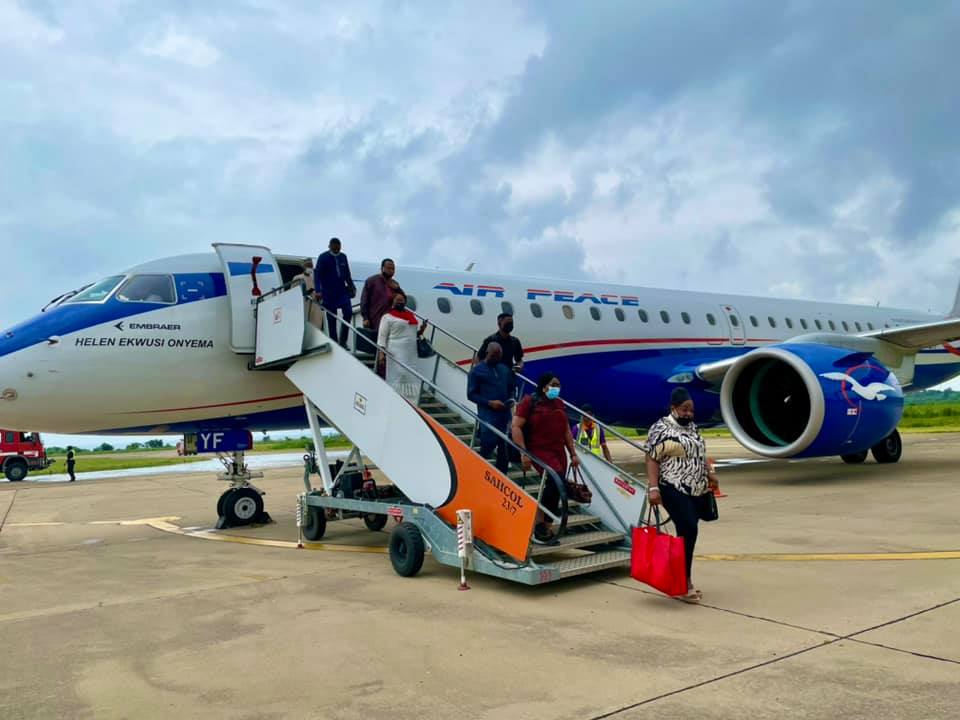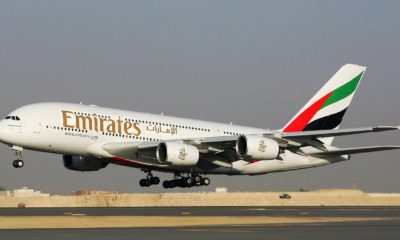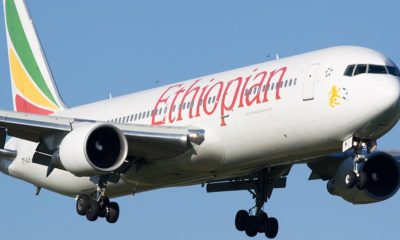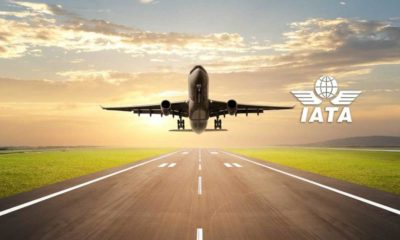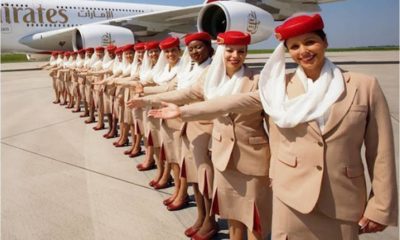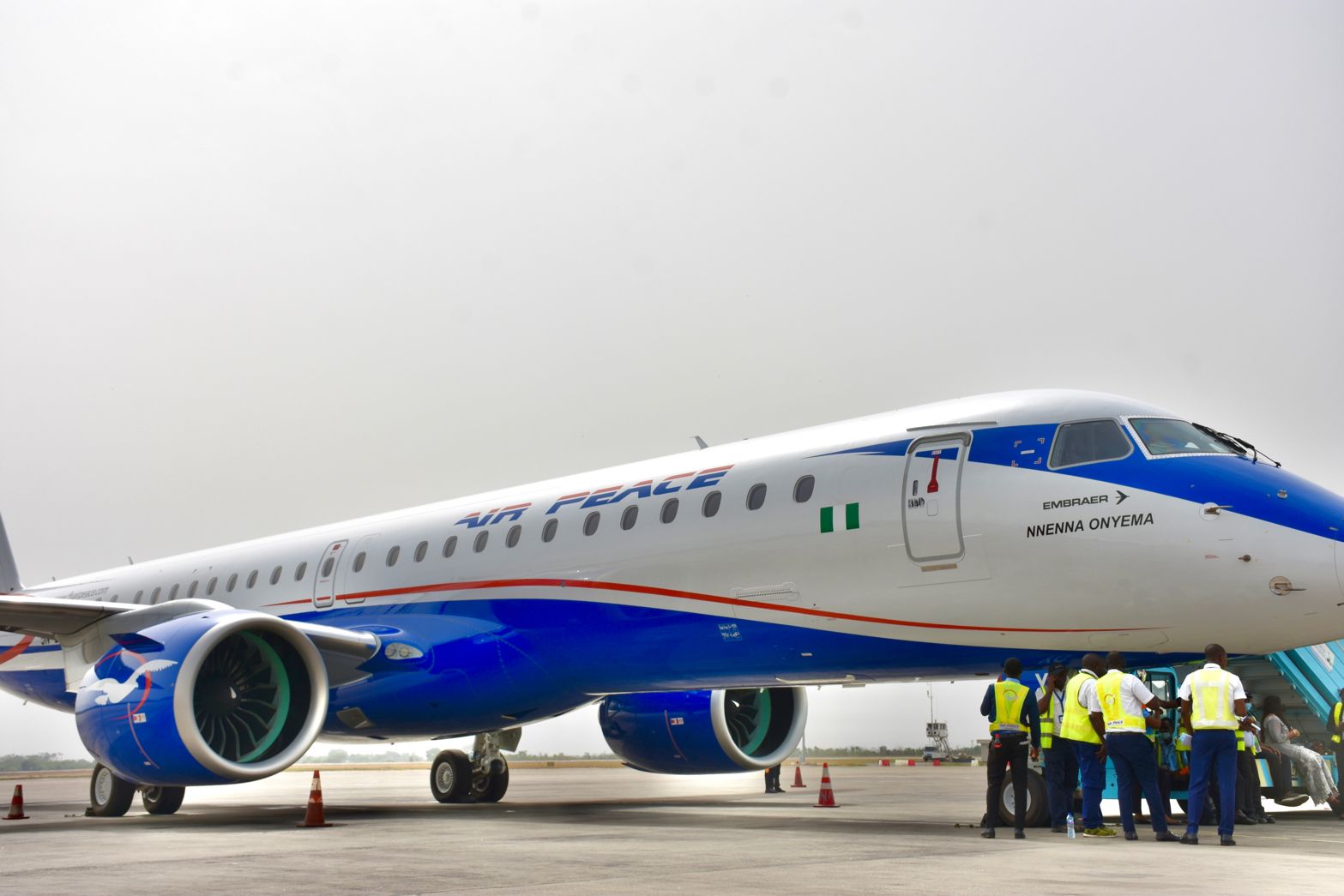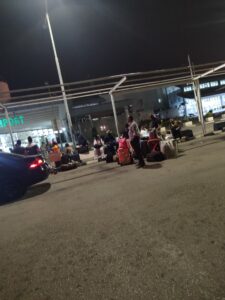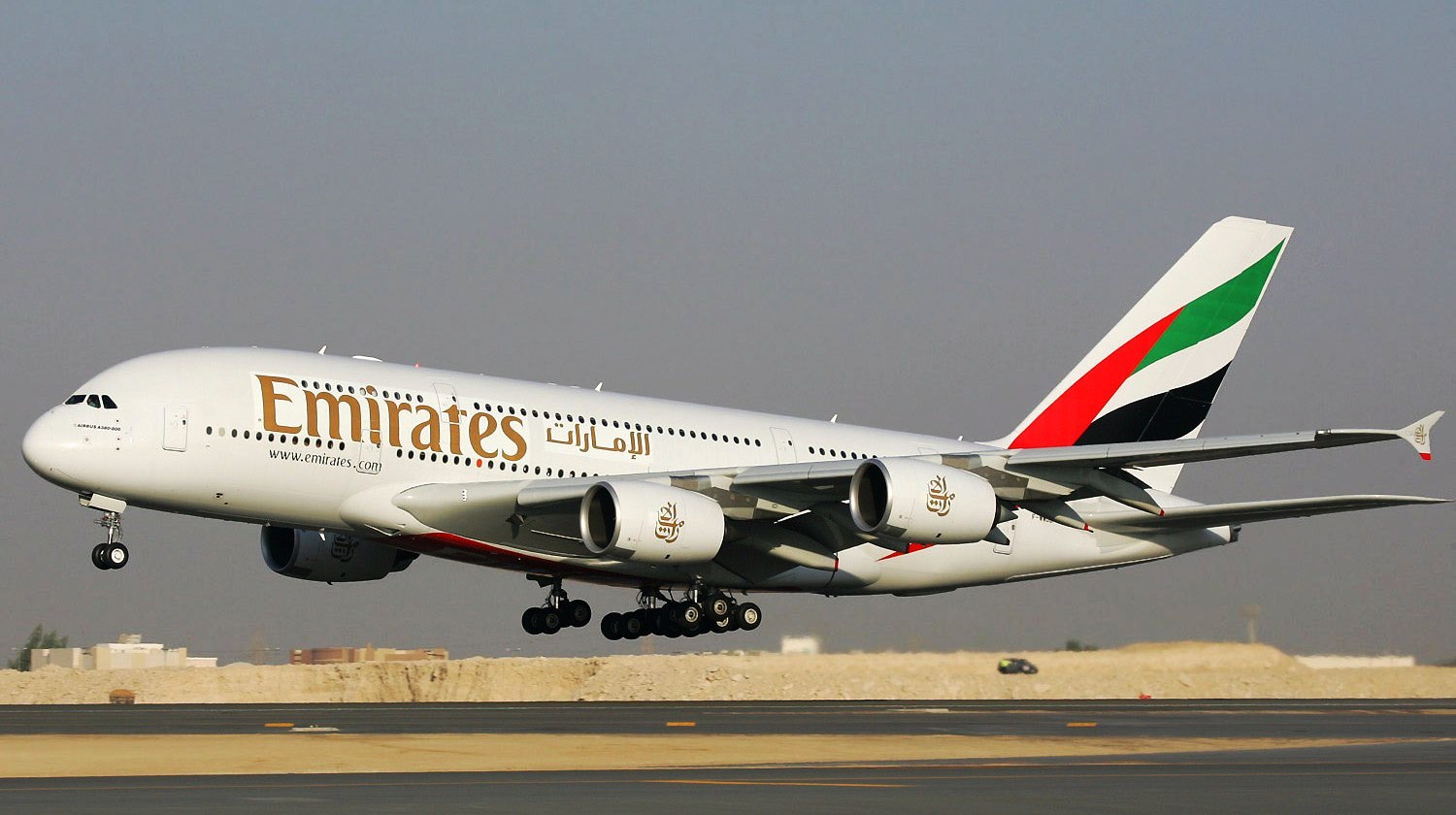The Nigerian Bureau of Statistics (NBS) has revealed a surge in the Airfares and bus commuters in various parts of the country in the last one year.
Investors King obtained an NBS report titled, ‘Transport Fare Watch for April 2022′ which covers the bus journey within the city per drop constant route; bus journey intercity, state route, charge per person; airfare charge for specified routes single journey; journey by motorcycle (Okada) per drop; and waterway passenger transport.
The reports reveal that on a month-to-month basis, the average fare paid by air passengers for specific routes on a single voyage grew by 18.57 percent from N46,810.62 in March 2022 to N55,501.49 in April 2022. This means that the fare increased 52.44 percent year over year from N36,409.46 in April 2021.
The average intercity bus fare paid by commuters increased by 8.75 percent from N3,270.94 in March 2022 to N3,557.15 in April 2022. On a year-over-year basis, however, it increased by 45.38 percent from N2,446.86 in April 2021. Similarly, the average bus ticket paid by commuters within the city each drop grew by 6.39 percent month over month, from N536.35 in March 2022 to N570.64 in April 2022. On a year-on-year basis, this rose by 47.80% from N386.10 in April 2021.
A different section of the report states that the average fare paid by commuters for motorbike trips grew by 8.03 percent month over month, from N395.12 in March 2022 to N426.84 in April 2022. The ticket increased by 54.48 percent year over year from N276.30 in April 2021. Furthermore, from N900.84 in March 2022 to N951.93 in April 2022, the average fare paid for water transportation (waterway passenger transportation) grew by 5.67 percent month over month. This increased by 16.06 percent year over year from N820.23 in April 2021.
On state profile analysis, Taraba recorded the highest air transport charges (for specified routes single journey) in April 2022 with N65,000.00, followed by Kogi with N64,258.91, while Kano recorded the least with N50,000.00.
Analysis by zone also showed that the North-Central recorded the highest airfare in April, 2022 with N57,552.54, followed by the North-East with N56,800.16, while the South-East had the least with N53,402.58.
Investors King suggests the increase in prices is linked to recent issues faced by local airlines, ranging from energy price spikes to a lack of access to foreign money.
About four months ago, Investors King gathered that the airline tickets will rise as a result of the increase in aviation fuel which was N400 per litre, and other operational costs which include airport charges.
Dr. Obiora Okonkwo, the Chief Executive Officer of United Airlines explained that domestic airlines were operating in a difficult environment.
He said “the first foreign exchange transaction we did when we started was N340. But now, when it is available, it is N450 but when it is not available, the alternative black market cost is N570. It might surprise you to know that despite such increase, today, because of the market situation, you still can buy your ticket at N20,000 or N21,000.
“What this means is that since all the airlines are buying from the same market, any ticket at this rate is being subsidised by the airlines. Aviation fuel, depending on how it is applied in the aircraft, can easily become 30 to 40 per cent of the cost component of your operations.”

 Forex2 weeks ago
Forex2 weeks ago


 Naira2 weeks ago
Naira2 weeks ago
 Billionaire Watch1 week ago
Billionaire Watch1 week ago




 Naira2 weeks ago
Naira2 weeks ago




 Naira1 week ago
Naira1 week ago




 Naira4 weeks ago
Naira4 weeks ago
 Nigerian Exchange Limited4 weeks ago
Nigerian Exchange Limited4 weeks ago


 Naira3 days ago
Naira3 days ago
